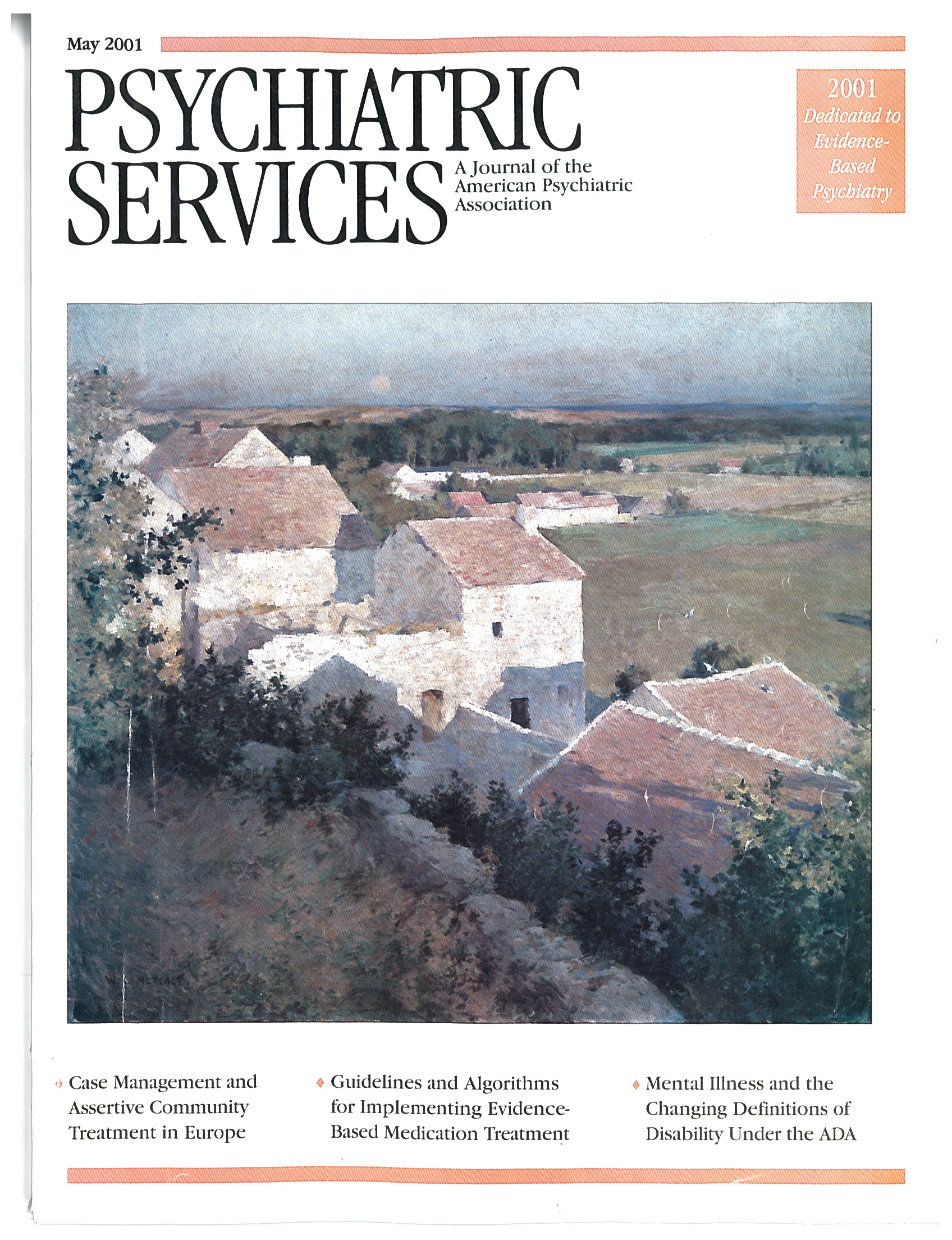To the Editor: In an article on bipolar disorder (
1) in the January issue of
Psychiatric Services, Charles L. Bowden, M.D., stated that this disorder is frequently underdiagnosed. In contrast, I believe that overdiagnosis of bipolar disorder is relatively common. In this letter I briefly discuss the basis of my belief and the risks I see in such instances of misdiagnosed bipolar disorder.
Errors in diagnosis can occur when DSM-IV criteria are applied too strictly, as Dr. Bowden notes, or when they are applied too loosely. Most clinicians easily recognize florid mania, but variants of bipolar disorder not characterized by a clear manic episode are frequently more questionable. Each criterion for mania has its own differential diagnosis, given the overlapping symptoms of many psychiatric disorders. For example, grandiosity also characterizes narcissistic personality disorder or may occur normally after a series of successes. Thus a loose application of the DSM-IV criteria could certainly increase the number of people diagnosed as having bipolar disorder, but many would be false positives.
Attempts to establish a history of mania or hypomania on the basis of a patient's reports can lead to missing the diagnosis, as Dr. Bowden describes, but it can also lead to overdiagnosis. In their reports, patients frequently minimize substance use during periods of apparent mania, or they may state that they abuse substances only when they are manic. Patients may overendorse manic symptoms for a variety of psychological reasons or they may misunderstand the severity of symptoms the clinician is looking for. For example, simple inquiries into whether a patient's thoughts ever "race" can receive a range of replies depending on the patient's subjective grasp of the word "race." As Dr. Bowden notes, information from collaterals such as family members and friends is invaluable in establishing the diagnosis.
Dr. Bowden notably does not include personality disorders in the differential diagnosis of bipolar-type symptoms. For hypomania DSM-IV uses a criterion of "unequivocal change . . . uncharacteristic of the person when not symptomatic." DSM-IV specifies a "distinct period" for mania. The DSM diagnostic system distinguishes between episodic illnesses such as bipolar disorder and the enduring, stable patterns of behavior that we designate as personality disorders. Dr. Bowden refers to concepts such as "enduring characteristics of bipolar disorder [that] appear in all phases of the illness," "hyperthymic temperaments," and "fundamental" bipolar disorder. I believe that such clinical descriptions overlap with those of several personality disorders. Mood lability and impulsivity are core criteria for personality disorders. Patients whose life stories are written in these terms should be differentiated from those who have episodes of uncharacteristic behaviors.
There is little dispute that bipolar disorder is a heritable, biologically based illness, but personality disorders have unclear etiologies that include problems in psychological development, a complex area of science. Treatment of bipolar disorder can be rewarding and occasionally simple, whereas treatment of a personality disorder is usually difficult and only occasionally gratifying after a long period of effort. Such considerations might sometimes lead to a collusion of doctor and patient to speak of bipolar disorder when a language of personal traits may be more helpful and accurate, even if less soothing. The risks of overdiagnosis of bipolar disorder include overmedication and a sense of ongoing failure in treatment that can lead to a feeling of defeat for patient and doctor. Additionally, some patients use their bipolar diagnosis to justify impulsive acts or offensive behavior.
One last confounding factor is the efficacy of some medications for symptoms of personality disorders. Mood stabilizers do appear to reduce mood lability and impulsivity regardless of diagnosis. However, to infer that a specific illness is present simply because a particular medicine helped would be to engage in faulty logic.

